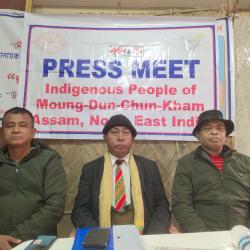A student of design, Indrani Medhi of Assam, India has developed a design process to expand the impact of technology to those who can't read. She has developed text-free user interfaces (UIs). These are design guidelines that would allow any first-time illiterate person, on first contact with a computer, to immediately realize useful interaction with minimal or no assistance. "Through an ethnographic design process involving more than 400 subjects from low-income, low- literate communities across India, the Philippines, and South Africa, I discovered that there were a number of usability challenges which people experienced while interacting with traditional textbased UIs, on both mobile phones and PCs. In addition to the general inability to read text, the other major challenge was the difficulty in navigating hierarchical menus in current information architectures. I developed design recommendations for non-textual UIs for low-literate users that use combinations of voice, video, and graphics," says Medhi. Medhi's applications are based on a few key principles: extensive use of hand-drawn, semi-abstracted cartoons with voice annotation in the local language, aggressive mouse-over functionality, a consistent help feature, and looping full-context video dramatizing the purpose and mechanism of the application. She has applied these principles to design four applications: job-search for the informal labor market, health-information dissemination, a mobile money-transfer system, and an electronic map. "Medhi has painstakingly and methodically conducted research to understand how to design user interfaces for computing devices such that illiterate and semi-literate users can use them. She has spent a lot of time in the slum communities understanding the needs and aspirations of the people of those communities and their daily lives," says Kentaro Toyama, former assistant managing director of Microsoft Research India. "Indrani developed a robust framework for designing user interfaces for illiterate users. The framework includes obvious recommendations such as using images and voice feedback, but also very subtle insights such as the importance of semi-abstract cartoons rather than photographs or simplified icons, or the allowance for numeric digits in some cultures where people can read numbers even though they can't read words. Indrani also discovered that illiterate subjects, because of their previous inexperience with computing, had other barriers to technology use, including intimidation by the technology, fear of breaking technology, and lack of mental models for how the technology worked. She devised the use of 'full-context videos' with content that featured not only instructional material, but a mini-story about how the technology worked in a real-life scenario," adds Toyama. During her research work, Medhi also discovered a host of nuanced issues beyond strict usability which mediate how a low-literate user interacts with computing technologies. "Such issues include cognitive difficulties, collaboration, cultural etiquette, experience and exposure, intimidation, mediation, motivation, pricing, power relations, social standing, and others. These factors can have far-reaching influence on the design of UIs as well as services for low-literate populations," she says. Medhi is now conducting research in understanding characteristics of the cognitive styles of those with little formal education and how that has implications for UI design. Mowsam Hazarika, Editor, Bijnan Jeuti , a popular science megazine of Assam Science Society , congatulated Indrani Medhi for her innovative achievment.
- Add new comment
- 13301 reads










Comments
Pages
Add new comment